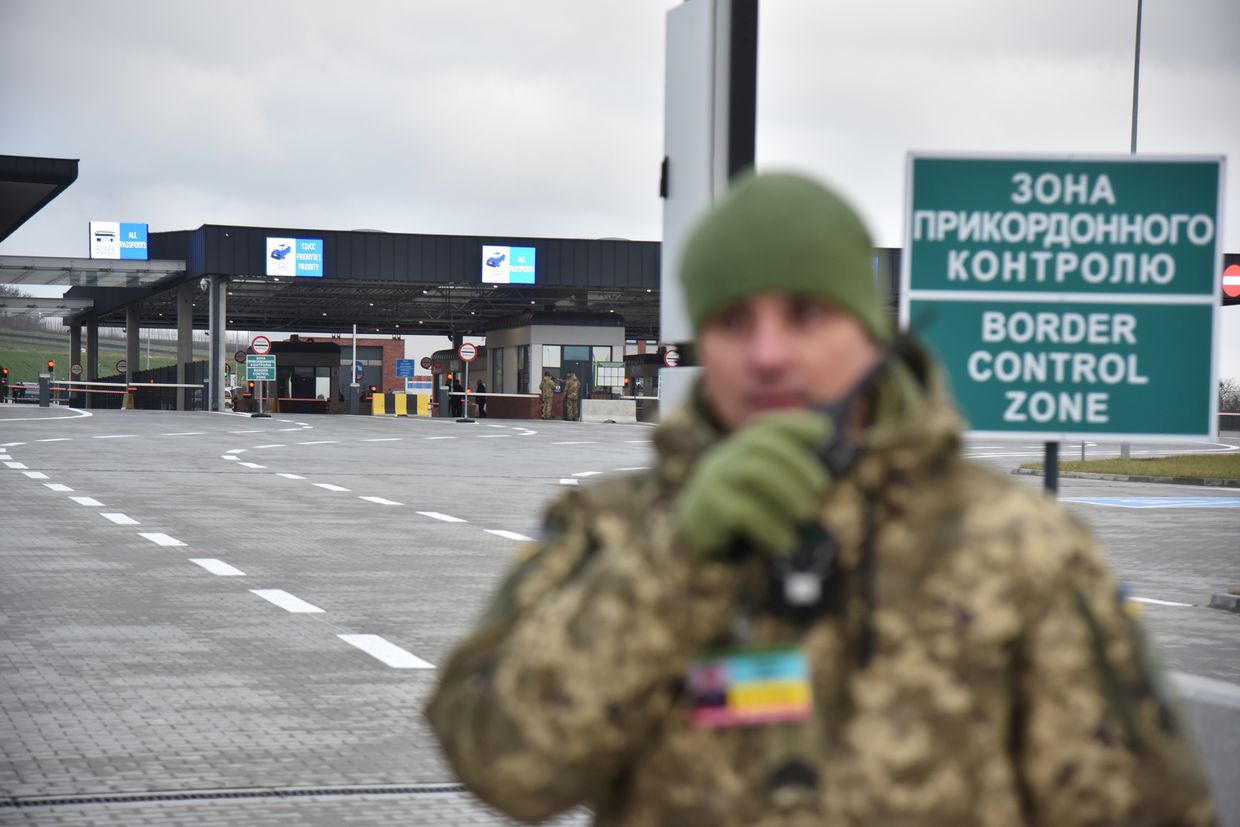After pressure, Ukraine announces appointment of economic watchdog

Ukraine appointed its long-awaited economic watchdog on Aug. 6, following international pressure from partners.
Oleksandr Tsyvinsky takes the reins of the Economic Security Bureau after the government controversially blocked his appointment on July 7, citing his estranged father's Russian citizenship as a security concern.
His appointment ends a month-long standoff between the government and the independent committee that selected Tsyvinsky as the nominee on June 27.
Ukraine's Western partners had issued little in the way of a response after the government initially blocked Tsyvinsky's appointment. Calls to go forward with his appointment mounted at home and abroad after Kyiv moved to curtail the independence of the country's key anti-corruption agencies late last month.
Prime Minister Yuliia Svyrydenko on Aug. 1 announced that before appointing Tsyvinsky, the two sides had agreed that he would undergo a polygraph test to prove he has no Russian ties.
On the date of his appointment, Svyrydenko wrote on social media to say that "after the decision of the competition commission, proper checks, and passing the polygraph, there are no reservations regarding his candidacy."
Tsyvinsky confirmed to the Kyiv Independent on Aug. 5 that he had passed the polygraph test and was awaiting his appointment the following day.

The next steps for Tsyvinsky are to form a commission to select new employees in the bureau and a commission to recertify all existing employees, wrote opposition lawmaker Yaroslav Zhelezniak, the main author of the law rebooting the bureau, on his Telegram channel.
"I will study the current state of affairs and immediately launch work to start reforming the team," Tsyvinsky told the Kyiv Independent on Aug. 1.
"The key goal is equal conditions for business."
The bureau had been rudderless since April 2023, and Ukraine pledged to find a new replacement as part of its requirements with the International Monetary Fund (IMF) and the EU. The IMF gave the government until July 31 to appoint the head selected by the committee.
Under the previous Prime Minister Denys Shmyhal, the government rejected Tsyvinsky’s appointment on July 7, following a letter from the Security Service of Ukraine (SBU) about Tsyvinsky’s father’s Russian passport on June 30.
This was information that the committee already knew and did not see any issues with, members of the committee said during a press conference on July 30.
Tsyvinsky repeatedly said that he has no connection with his father, who has not been seen in around a decade. He told the Kyiv Independent on Aug. 1 that he was confident he would pass the polygraph test, as there was no "compromising information."
Tsvinsky repeatedly requested access to the letter, but only received a written response on July 31 from the SBU that the letter had been destroyed. This sparked further backlash from Brussels.
"We consider this to be blatant manipulation and evidence that the Security Service of Ukraine has no information about the real risks of appointing Tsyvinsky," the European Commission said in a letter to Svyrydenko, seen by the Kyiv Independent on July 31.
Simultaneously, the European Commission noted the issue was one of the demands set by anti-corruption protestors over the last few weeks. Protests began on July 22 when the government ignited outrage by passing a law stripping two anti-corruption bodies of their independence, which it overturned on July 31 in response to the backlash.
"It is important that economic relations in Ukraine are not distorted by shadow schemes and that businesses can count on respect from the state," Svrydenko wrote on social media on Aug. 6.
Created in 2021 to investigate economic crimes, the bureau has been accused of inefficiency and political meddling.
In addition to a requirement under its IMF loan program, reforming the bureau is also part of Ukraine's broader reform commitments under its EU accession process.
Polygraph tests have become a common move of President Volodymyr Zelensky’s administration in response to various threats, despite having questionable results.
A new bill that passed on July 31 to restore independence to anti-corruption bodies included mandatory polygraph tests every two years for employees with access to state secrets, to clear out Russian influence.
Anti-corruption watchdogs previously told the Kyiv Independent there is little evidence that Russian influence was an issue in the two targeted agencies: the National Anti-Corruption Bureau (NABU) and the Specialized Anti-Corruption Prosecutor (SAPO).












